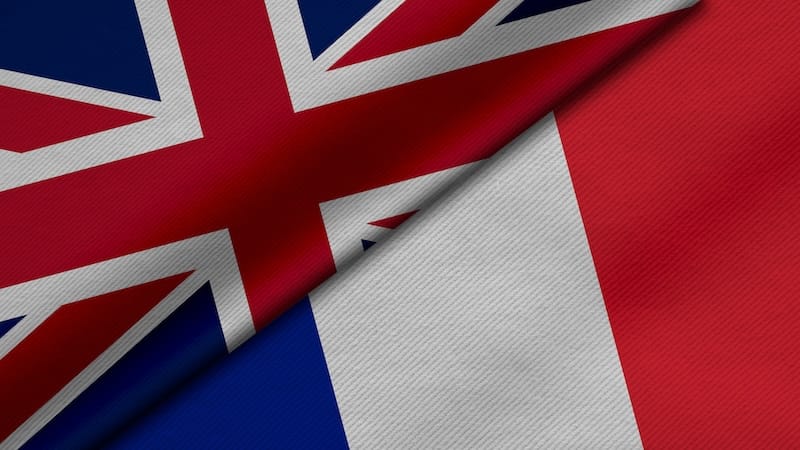LLM student Sean Doig compares the arbitral regimes of the two countries

It is no secret that there has been a long rivalry between England and France throughout history; particularly, one of animosity and frequent hostility. For centuries, the French and British Empires fought for supremacy of the New World, later expanding their conflicting ambitions to India, the Pacific, and Africa. Today, that rivalry takes a different form.
While the two countries are great allies, politically-speaking, the race for arbitral supremacy over the other is prevalent. French and English courts are constantly bickering over who has jurisdiction in arbitral proceedings according to the vaguely-defined law governing the arbitration agreement (lest we forget Kabab-Ji).
Although, their rivalry comes as no surprise. From the decline in litigation proceedings to globalisation and the increasingly international nature of disputes, attracting arbitral proceedings to one’s host state is now an artform. Among many other jurisdictions around the globe, two major competitors in the arbitration game are London and Paris: both systems offering different approaches in areas ranging from the law governing the arbitration to the enforcement of awards.
With the upcoming 2024 Summer Olympics about to be held in Paris, there is never a better time to examine this friendly rivalry. So, get your flags at the ready. Cue the national anthems. And enjoy the spectacle of two nations going head-to-head for gold in the race for arbitration supremacy.
Team briefing
In lane one, representing France, is the International Chamber of Commerce’s International Court of Arbitration (ICC): the forefront of France’s arbitration institutions. Other key institutions on France’s team include the French Association for Arbitration (Association Française d’Arbitrage), the Regional Chamber of Arbitration (Chambre Régionale d’Arbitrage), the International Arbitration Chamber of Paris (Chambre Arbitrale Internationale de Paris), the Paris Centre of Mediation and Arbitration (Centre de Médiation et d’Arbitrage de Paris, CMAP), and the European Court of Arbitration located in Strasbourg.
In 2023, the ICC celebrated its 100th year of service, recording over 28,000 cases since its establishment. The key industries in France for international arbitration proceedings are construction, energy, industry, and digital technologies. The majority of disputes involve contractual breaches or brutal termination of commercial relationships.
In lane two, representing England, is the London Court of International Arbitration (LCIA): the heart of English arbitration since 1889. Other key arbitration institutions on England’s team include the Centre for Effective Dispute Resolution (CEDR), the London Chamber of Arbitration and Mediation (LCAM), Falcon Chambers Arbitration, and Sports Resolution.
In 2022, the LCIA had 333 referrals with its caseload increasing by 60% in the past 10 years. Indeed, a 2021 survey by Queen Mary University of London found that London remains the most favoured arbitral seat in the world, with non-UK parties accounting for around 88% of its users. According to the LCIA’s 2022 annual casework report, the top three industry sectors dominating the LCIA’s caseload are banking and finance, energy and resources, and transport and commodities (together representing 65% of all cases).
While London would probably be a bookies’ favourite to win at this point, there are a few core aspects to each approach that require further examination.
The legal framework governing arbitration
French arbitration law is not based on the United Nations Commission on International Trade Law (UNICITRAL) Model Law; in fact, it largely pre-dates the Model Law and differs from it in several aspects. Instead, French law distinguishes between domestic and international arbitration.
The law is mainly codified in Articles 1442 to 1527 of the French Civil Procedure Code (“CPC”) and Articles 2059 to 2061 of the French Civil Code (“CC”). The domestic arbitration regime is more strict than that for international arbitration, which allows the parties and arbitrators more flexibility in adopting arbitration procedures. According to Article 1504 CPC, arbitration is international “when international trade interests are at stake”. An arbitration is therefore deemed international upon the objective criteria relating to the trade in goods, services or financial instruments across borders, regardless of the parties’ nationality, the applicable laws, or the arbitration seat. This distinction matters since the rules applicable to international arbitration are more liberal.
Regarding both domestic and international arbitration, France created a dedicated judge (juge d’appui) to have jurisdiction over arbitration-related issues and act in support of arbitral proceedings. Such a judge may assist the parties in the constitution of the arbitral tribunal if any problem arises, particularly in ad hoc proceedings, as the judge’s role is limited in proceedings governed by institutional rules.
Additionally, the Paris Court of Appeal created a dedicated international chamber exclusively focused on appeals against first-instance decisions in cross-border commercial matters, and some other specific matters including the annulment proceedings against international arbitral awards handed down in Paris, as well as challenges against enforcement orders, in order to ensure coherent case law. Similarly, the French Supreme Court (cour de cassation) systematically assigns such proceedings to its first civil division.
Want to write for the Legal Cheek Journal?
Find out moreIn contrast, the Arbitration Act 1996 (the “Act”) regulates domestic and international arbitrations seated in England, Wales and Northern Ireland. The Act is influenced by the UNCITRAL Model Law but differs from it in some important ways. For example, the Arbitration Act is a single legislative framework governing all arbitrations, not just international commercial arbitrations. Applications in support of arbitrations are made in specialised courts of the Business and Property Court of the High Court of Justice, typically in the Commercial Court or the Technology and Construction Court.
Confidentiality of proceedings
According to article 1464 CPC, relating to domestic arbitrations, an arbitral proceeding is confidential unless otherwise agreed between the parties; such confidentiality obligation extending to the names of the arbitrators, the arbitral institution, the legal counsels, and the seat.
With respect to international arbitration, no French legal rules provide for a general obligation to ensure confidentiality for international arbitration. Consequently, the parties must enter into a confidentiality agreement, provide a confidentiality clause in their arbitration agreement, or choose an institution which expressly sets out that arbitral proceedings are confidential.
Nevertheless, article 1479 CPC provides that members of the arbitral tribunal must keep their deliberations a secret, whether it be a domestic or international arbitration.
In England, there is no express provision for confidentiality in the Arbitration Act. However, English law generally recognizes the confidentiality of arbitral proceedings, subject to limited exceptions. For instance, documents used in arbitration proceedings may be disclosed where ordered by the court, or in cases where such disclosure is necessary for a party to establish or protect their legal rights. In their 2022 review of the Arbitration Act 1996, the Law Commission proposed that the Act should not codify English law on confidentiality in arbitration, concluding that it is an area best left to be addressed by the courts. Two reasons were given: (a) arbitration is used in a variety of instances and there is a trend towards transparency in some types of arbitrations (i.e. investor-State disputes), and (b) existing case law on confidentiality is still evolving and not yet ready to be codified.
Enforcement of arbitral awards
While France is a signatory of the New York Convention — as well as to the ICSID Convention – France put forward one reservation upon ratification in relation to the principle of reciprocity: “France declares that it will apply the Convention on the basis of reciprocity, to the recognition and enforcement of awards made only in the territory of another contracting State”. It should be noted that French law usually prevails over the New York Convention as permitted by Article VII(1) since French law is actually more favourable than the Convention itself.
An international arbitral award can only be enforced in France if it is rendered effective by an enforcement order known as an “exequatur”. This procedure is non-adversarial and only allows the judge limited control. In fact, the judge is solely requested to verify if the award whose enforcement is sought does exist, and whether it is not manifestly contrary to the French definition of international public policy. Conflict with French international public policy is the only ground for refusal of exequatur, and it is defined by French courts as the values and principles that cannot be disregarded, even in an international context. The cases where French judges refuse to grant an exequatur are very rare. Since conflict with French international public policy is the only ground for refusal, French courts may confer exequatur even if the award has been set aside by the courts in the seat of arbitration since the setting aside of an award is not a ground for refusing it.
England is also a signatory of the New York Convention, but subject to the reservation that the New York Convention only applied to awards made in the territory of another Contracting State. In IPCO (Nigeria) Ltd v Nigerian National Petroleum Corporation (2017) UKSC 16, the Supreme Court held that the Convention constitutes “a complete code” that was intended to establish “a common international approach” to the conditions for recognition and enforcement. Thus, it is not permissible to use English procedural rules to fetter a party’s rights under the New York Convention.
The procedure for enforcing an arbitral award in England is governed by the 1996 Act. Section 66 provides the following two alternative procedures for the enforcement of an award: (i) an arbitral award may, by leave of the court, be enforced in the same manner as a judgement or order of the court, or (ii) an award creditor may begin an action on the award, seeking the same relief from the court as is set out in the tribunal’s award.
To obtain a recognition and enforcement of a New York Convention award, under section 102(1) of the 1996 Act, a party must produce the duly authenticated original award and the original arbitration agreement. The grounds for refusal are set out in section 103 of the 1996 Act, mirroring Article V of the New York Convention. This means that the English courts retain their discretion to enforce an award even where one of the grounds for refusal is shown to exist. However, in practice, it is rare that the English courts would conclude that an award should be enforced if there are grounds for refusing recognition. Indeed, in Dallah Real Estate & Tourism Holding Co v Ministry of Religious Affairs (Pakistan) (2009) EWCA Civ 755, the court recognised that its discretion to enforce an award – even where a ground under section 103 exists – should be narrowly construed.
Furthermore, it is not necessary for the court to recognise and enforce an arbitral award in its entirety. In IPCO (Nigeria) Ltd, the High Court held that “award” in the 1996 Act should be construed broadly to mean the “award or part of it”, meaning the court can enforce part of an award.
Final comments
While both France and England can be said to have fairly rigid legal frameworks to facilitate arbitral proceedings and empower arbitrators to hand down their awards, there is a case to be made that France might have the upper hand; particularly in terms of a higher degree of complicity in enforcing arbitral awards on its soil. Ultimately, it boils down to which system is the best fit for one’s client. There are several other factors involved in selecting a seat of arbitration that have not been covered here, including costs, selection of arbitrators, types of reliefs, and so on. Indeed, there is also the possibility of future reform of either the French arbitral procedure or reform of the Arbitration Act in England, therefore it is best to conduct thorough due diligence before making any legal commitments.
Sean Doig is an LLM student at Université Toulouse Capitole specialising in International Economic Law. He is currently working on his master’s thesis, and displays a particular interest in international law, technology and dispute resolution.
 (
( (
(

